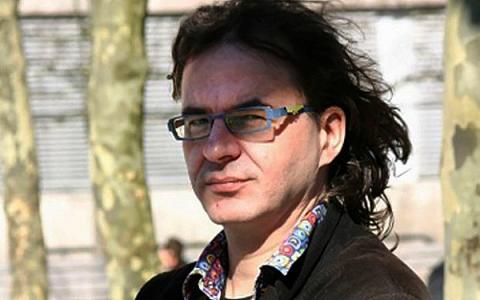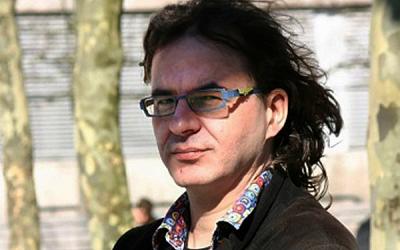
500 years ago, in the nice German town of Wittenburg, a German professor of Theology nailed his 95 Theses to the door of the Castle Church (or did he?). Luther’s act of rebellion against the Catholic Church was a main factor for the Protestant Reformation. Somehow 500 years later, some people think the world is in need of another Reformation, an Islamic one to be precise, as has been suggested by Naser Khader and by Ayaan Hirsi Ali for example. Today (31 October), at the Essalam mosque in Rotterdam (NL) unknown individuals have nailed their own plea on the doors of the mosque. Most of these pleas are put forward against the background of political violence by Muslims, the rise of and atrocities committed by IS and problems with integration of Muslims. The idea then is that a more peaceful Islamic theology would also make Muslims more peaceful.
There are several problems with that idea:
-
Luther was arguing against particular practices by the Catholic Church. However Islam is not a church and contemporary Islam is not the same as the Catholic Church in Luther’s time either. Different times, different worlds, different theologies and different institutions.
-
The pleas for a Lutheran reform of Islam ignore major changes within the Muslim majority world in the second half of the 19th and first half of the 20th century. The fall of the Ottoman Empire and the subsequent global and regional political changes produced new reform movements and intellectuals like Jamal al-Din al-Afghani (1838-1897) and Muhammad ‘Abduh (1849-1905).
-
Besides a more modernist trend within Islam these changes also produced fundamentalist (which one could argue are quite modern therefore) trends, in particular the puritanical trend advocated by Muhammad Ibn Abdul Wahhab. Doing away with centuries old Islamic scholarship, purifying Islam of what he regarded as innovations and allying with the House of Saud, he is on the basis of modern day Saudi-Arabia. Or think about IS, it could be seen as one of the answers to those changes. Not quite the reform people like Hirsi Ali are advocating for but which does reminds us of the fact that the outcome of the Reformation was not only a modernist Christian trend but also fundamentalist ones.
-
Looking at the what came out of the Reformation, one of its results was war and bloodshed on a very large scale. One of the reasons people make a plea for Islamic reform is exactly the bloody sectarian conflicts that are going on right now. How come they forget this?
-
Luther played an important role in disseminating anti-Jewish ideas and anti-Judaism. He regarded Jews as the Devil’s people (in his text On the Jews and Their Lies) and called for destroying the homes of Jews and their synagogues. His ideas were not new but his influence on this matter continued well throughout 19th and 20th century. So, do we need more anti-semitism these days?
- Luther has called Muslims (Turks) servants of the devil and the Muhammad was the son of the devil, the devil’s apostle and the rude devil at once. The Quran was a horrible book according to him and a distortion of Christianity. Muslims could hardly be called humans as they lacked common human reason. What kind of Islamic reform would this be?
So, there already have been multiple reforms (not even mentioning the continuing intellectual debates among Muslims throughout the ages) and they have led to several different (and sometimes contradicting outcomes). So far, but only so far, the comparison makes sense and for the rest not at all. So why these pleas then? Maybe the people doing them, do not know history? Then the advice would be, be careful what you wish for and start doing some reading first.
But there are two other highly problematic assumptions that underpin these pleas, certainly when they come from people who are not Muslim. First of all, there is this idea that Muslims do whatever their theology tells them to do. So if you make Islam violent, they will be violent and if you make Islam peaceful they will be peaceful. We can call this, like my colleague Yolande Jansen (VU University, Amsterdam) did in a debate: textual slavery. It contributes to the racialization of Muslims as violent people, in particular because of the second assumption.
The pleas are about making Islamic theology less violent (and therefore also making Muslims less violent). However, notwithstanding the fact that indeed some Muslims find inspiration for the use of violence through their reading of the texts, this is based on a very negative, prejudiced and stereotypical reading of the texts. Moreover, while Islam is tarnished through such stereotypical readings, Luther, the Reformation and their heritage are whitewashed. Somehow all the bloodshed, wars, intolerance and different modes of racism magically disappear in the readings of European and Christian history, the Reformation and Luther’s work.
So what we have here is a idealistic rendering of the Lutheran heritage characterised by peace, modernism, and progress set against a threat of a doomsday Islam. Such pleas combine a racialization of danger with textual slavery. Taken from that perspective they have more to do with positioning oneself in the debates on Islam, integration, security and human rights, than with an actual intellectual endeavour to create the potential for change.
Dit stuk verscheen eerder op www.religionresearch.org, de blog van dr Martijn de Koning.

